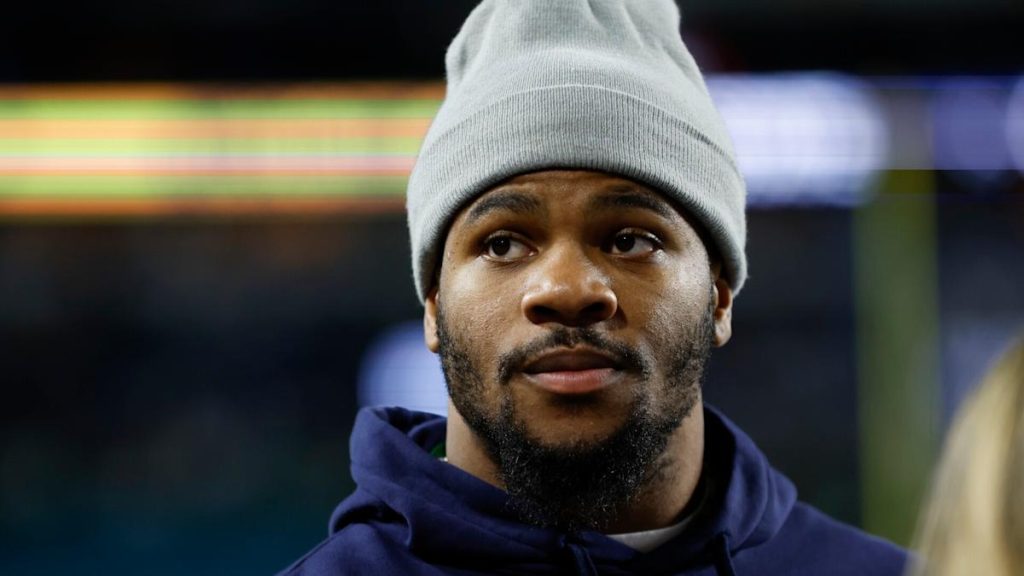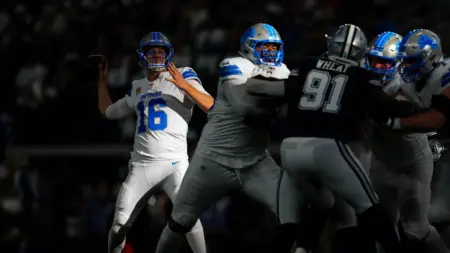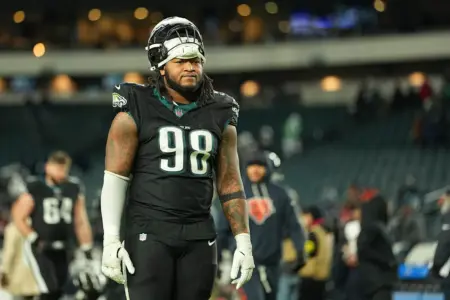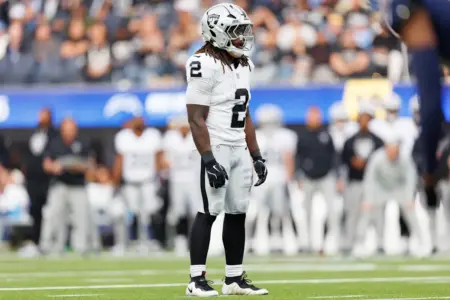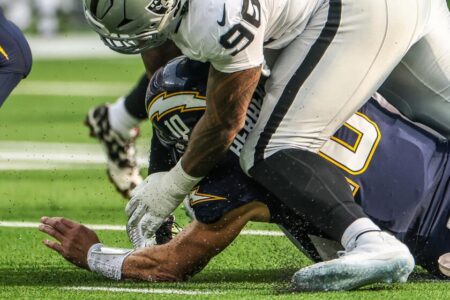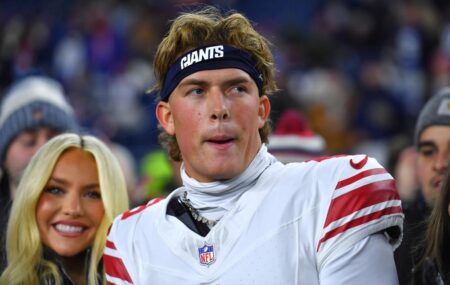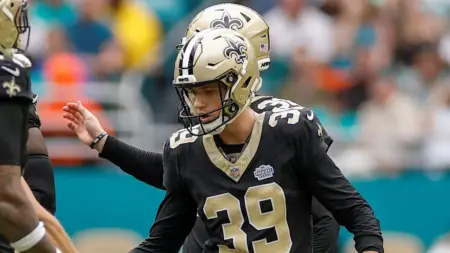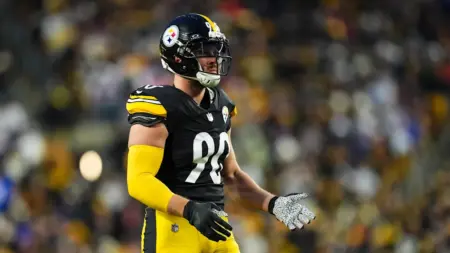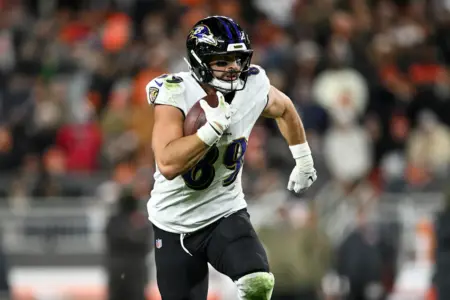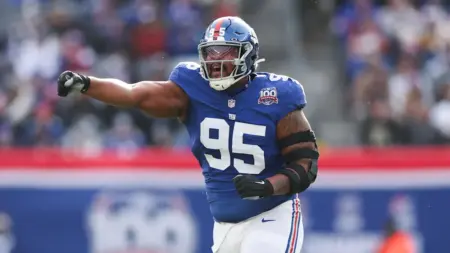The Cowboys’ Talent Development and Contract Delays
The Dallas Cowboys have long been recognized for their adeptness in drafting and developing young talent. Head coach Mike McCarthy, along with the entire coaching staff, has a knack for turning raw prospects into NFL stars. However, when it comes to rewarding these home-grown stars with timely new contracts, the Cowboys often find themselves lagging behind. This foot-dragging approach has been a recurring issue, most notably in the previous free agency period where the cap savings from new deals for receiver CeeDee Lamb and quarterback Dak Prescott came too late to make a significant impact. This year, as linebacker Micah Parsons waits for his well-deserved second contract, the question looms: will ownership once again adopt an all brakes, no gas strategy?
The Impact of Delayed Contract Negotiations
On Thursday, offensive coordinator Kellen Moore (previously John Schottenheimer) addressed the issue, acknowledging that the front office understands the impact of delay. "I think they understand that," Moore said, via Jori Epstein of Yahoo Sports. "Look, the business of the NFL has become so big and again it’s a two-way street. There’s negotiations and sometimes those negotiations take time, [so] it’s our job to focus on the guys that are there." While this statement is true, it doesn’t fully address the urgency required in NFL contract negotiations. When mutual trust and respect exist, both sides can agree to an artificial deadline and expedite the deal-making process. Without such trust, the process often gets prolonged until real deadlines, such as the start of the regular season, force action.
The Case for Timely Contract Extensions
If the Cowboys were genuinely committed to extending Parsons’s contract and creating cap space early in free agency, the timeline would be much tighter, and the deal would be finalized well before the regular season. It’s not a question of whether Parsons will eventually get his second contract—unless the Cowboys are considering trading perhaps the best defensive player in the league, which seems highly unlikely. The cost of waiting is that the price tag for Parsons will only increase over time. So, why not seal the deal at a time that is conducive to conducting other business, such as signing new players to fill critical positions?
The Consequences of Delay
The consequences of delaying Parsons’s contract are clear. Last year, CeeDee Lamb stayed away from team activities until he secured a new deal, and there’s no reason to think Parsons wouldn’t do the same. This means Parsons might not be as prepared for Week 1 as he could be, potentially affecting his performance and the team’s overall success. Moreover, the Cowboys won’t be able to reduce Parsons’s $24 million cap number for 2025 in time to sign new players at positions of need. Beyond keeping the cash in their own coffers for a few more months, there is no tangible benefit to waiting.
The Competitive Drawbacks
Moore also emphasized the team’s focus on their existing players. "We’re always going to start with our guys. We know them, right? We’ve got history with them. We’ve developed those guys. We understand their strengths, their weaknesses, what they bring to the table from a culture standpoint." While this is a commendable approach, it becomes harder to compete in the "very competitive time of year" when ownership delays the finalization of key contracts. This stubborn refusal to accelerate the contract process for multiple stars has been one of the various factors contributing to the Cowboys’ longest championship game drought in the conference, a span of 30 years—15 years longer than any other team.
A Path Forward for the Cowboys
While this one specific change won’t single-handedly propel the Cowboys to the NFC Championship, it is a critical step in the right direction. By addressing the issue of timely contract negotiations, the Cowboys can create a more conducive environment for their star players and improve their chances of success. The ongoing delay in extending Parsons’s contract is a clear indication that the team needs to prioritize this aspect of their operations. Only by fostering a culture of mutual trust and respect and acting decisively can the Cowboys hope to break their long-standing championship drought and return to the pinnacle of NFL success.

